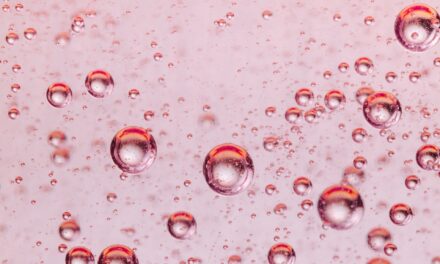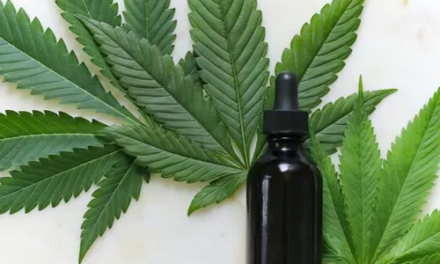Sensitive & Reactive Skin: What to Avoid?
If you have sensitive or reactive skin, what not to do is at least as important as what you actively undertake in terms of skincare. Many dermatologists, including our advisor and renowned expert on skin sensitivity Dr. Sandy Skotnicki, believe that using too many products, and using too harsh products is at least in part responsible for the growing number of people suffering from reactive skin.

Here is a quick list of things that people with sensitive, or reactive skin should avoid and even a cheesy acronym that might help you to remember the list better: OOPS-FF . It stands for:
O ver-cleansing
O ver-exfoliating
P lant extracts
S oap & harsh surfactants
F ragrance
F ormaldehyde-releasing preservatives
(Please feel free to ignore the acronym, staying away from cheesy things is a very commendable stance😉).
What to avoid for sensitive skin
To help your skin sensitivity and minimize the risk of skin reactions, avoid:
- Over-cleansing. Most people do not need to cleanse their facial skin more than once per day. Every time you are washing your skin even with a mild cleanser or just water, you are causing some damage to the skin barrier. There is no benefit of cleansing when your skin is not dirty (for example, when you wake up in the morning if you’ve removed your sunscreen and pollution from the day the night before). Read more about our recommendations for cleansing here.
- Over-exfoliating. Removing the upper layer of your skin logically makes your skin barrier weaker. Dead skin cells on the surface of your skin are not useless: they serve like bricks in a wall physically protecting the deeper layers of your skin from environmental aggressors and potential irritants.
- Plant extracts (most plant extracts, some of them – like oatmeal – are safe & good for sensitive skin). Botanical extracts are very complex in terms of their chemical composition, and many of their compounds can trigger an immune response from our skin leading to an irritant or allergic reaction. Many plants that have a reputation for their “calming” properties like lavender or chamomile have earned it due to their pleasant smell or taste, but chemicals in these botanical extracts are known to be potent skin allergens and irritants.
- Soap and harsh surfactants. Surfactants are a type of molecules that have one water-loving, and one oil-loving end. Because of this property, surfactants work as cleansing agents and can help deactivate many bacteria and viruses. The downside of their action is the effect on the natural skin barrier: surfactants can remove natural skin lipids, bind to skin proteins causing irritant reactions, and disrupt the natural pH of the skin surface. Some surfactants – like traditional soap (even the one made from all-natural ingredients like lovely-sounding oils & butters!) and Sodium Lauryl Sulfate are especially likely to interfere with the skin barrier. This is why it is better to opt for milder cleansing agents for skin washing (modern gentle hand, face and body washes often contain a mixture of surfactants which seems to reduce the risk of skin irritation).
- Fragrance. This is a large group of volatile compounds that are used to make products smell nice or mask the unpleasant odor of other product ingredients. Fragrances, both natural (like essential oils) and synthetic, are one of the most frequent triggers of skin irritation and allergies. They do not have a positive effect on the skin, and it’s safer to avoid them if your skin is sensitive. Read more about the risk of fragrance in skincare here.
- Formaldehyde-releasing preservatives: diazolidinyl urea, imidazolidinyl urea, quaternium-15, DMDM hydantoin, sodium hydroxymethylglycinate. These preservatives are known to be frequent skin allergens and irritants, even though the amount of formaldehyde they release is way too small to trigger other negative health effects associated with formaldehyde (formaldehyde is not used in cosmetic products today). Luckily, this class of preservatives is being gradually phased out by the cosmetic industry, but you can still come across products that use them (be especially wary of shampoos, conditioners, and lotions provided in hotels and gyms).
You can create your personal Avoid List on WIMJ here (you’ll be prompted to create a free WIMJ account). You can add all the ingredients you’d like to exclude from your skincare, and WIMJ search will flag if a product includes your unwanted ingredients.
Choose your products based on what's inside
WIMJ Search allows you to select skincare products based on ingredients, not marketing hype. Filter products by actives included, and exclude ingredients you don’t want. Check the concentration of ingredients and potential irritants.
Related Articles
Winter Skin Care: Navigating the Chilly Season with Healthy Skin
Let’s dive into understanding winter skin and how to best care for it.
The Dark Side of Lightweight Sunscreens
Do lightweight sunscreens provide enough sun protection? Lightweight sunscreen formulas have a higher risk of not providing the sun protection they promise. Learn more in this article.
Azelaic Acid: How It Works and Why You Might Need It In Your Skincare
Azelaic acid may not be the most hyped skincare ingredient, but, frankly speaking, it deserves way more recognition. Despite its underappreciated status, azelaic acid boasts a myriad of evidence-backed benefits, including combating acne, mitigating rosacea, addressing hyperpigmentation, and fighting against free radicals.
Why Has My Skin Become Sensitive All of a Sudden?
Have you recently noticed your skin turning into a battleground of reactions? Is your once-placid complexion now flaring up at your go-to beauty products? You’re not alone. Suddenly sensitive skin can perplex anyone. Here’s a breakdown of why it might be happening and what you can do about it.
Sunflower Seed Oil: The Top Face Oil For Skin Barrier
Struggling to decide which face oil to choose? Sunflower seed oil might not be the most glamorous or exotic of skincare oils, but it could actually be the best for your skin.
CBD Skincare Benefits and Unknowns
Discover the impressive potential of CBD in skincare and learn about the risks. Our evidence-based exploration covers the CBD potential for treating acne, eczema, psoriasis and combating inflammation.
Is Petrolatum In Skincare Bad?
Get the facts about petrolatum, a top ingredient in skincare. Learn how this powerful moisturizer soothes, protects, and hydrates the skin. Plus, discover why it’s trending on social media and how it’s safe even for the most sensitive skin areas.
Can You Use Retinoids for Rosacea-Prone Skin?
If you’ve been grappling with the frustrating skin condition called rosacea, you may have been advised to steer clear of retinoids. This advice typically stems from concerns that retinoids can further irritate your already inflamed skin. But here’s something that may surprise you: retinoids, in fact, are commonly used in rosacea medical treatments.
Opting for Fragrance-Free Skincare: A Skin-Friendly Choice
Opting for Fragrance-Free Skincare: A Skin-Friendly ChoiceIs the smell of your skincare products hurting your skin? It's a question we often don't think about. Yes, the scents can be nice, but they can also cause problems. About one in three skin issues from cosmetics...
What Does Sensitive Skin Mean and How to Help It?
Discover what sensitive skin truly means. We break down the causes, symptoms, and potential triggers of sensitive skin, and share simple steps to manage and reduce skin sensitivity effectively.




